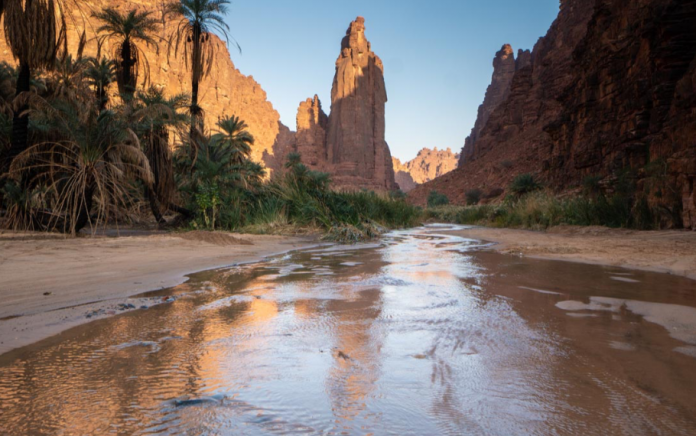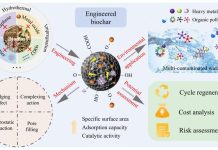Open Access Government maps the social, economic and environmental aspects of sustainable development in the Kingdom of Saudi Arabia
The Ministry of Environment, Water and Agriculture in the Kingdom of Saudi Arabia (MEWA) is constantly striving to achieve sustainable development, working towards its mission to maintain distinguished performance in developing and applying comprehensive policies and effective strategies, as well as promoting services by engaging the private sector and the competent authorities, with a view to achieving prosperity and sustainability of the environment, water and agriculture.
The key areas and objectives consist of:
- Preserving and sustainably developing the environment and its natural resources.
- Achieving water security.
- Contributing to achieving sustainable food security.
- Bringing about the sustainable development of other sectors.
- Providing high-quality sustainable services and products.
- Activating the role of the private sector, research centres and non-profit organisations.
Abdulrahman Abdulmohsen A. AlFadley is the Minister of Environment, Water and Agriculture, and he states that “the Ministry always seeks to update its programs and plans that aim at developing its services in the fields of the environment, water and agriculture to be in line with the Saudi Vision for 2030. These efforts are intended to improve performance and services, as well as achieve cost-effectiveness.”
One example of this is the “Let’s Make It Green” campaign to plant 10 million trees before the end of April 2021. The campaign targets 165 sites across all regions of the Kingdom and involves planting endangered trees and shrubs in areas which were environmentally degraded due to overgrazing, logging, uprooting and urban sprawl. This green campaign is among several other initiatives recently launched by MEWA under the Saudi Arabia’s ambitious Vision 2030 plan to increase vegetation and combat desertification in the Kingdom.
MEWA has also placed particular importance on agricultural sustainability, with the recent announcement of investment opportunities worth SAR120 million in the production and multiplication of seed potatoes. This investment aims to encourage increasing local production and reducing imports to achieve self-sufficiency and to create job opportunities.
This Seed Centre will undertake the necessary supervision and follow-up processes to approve the seeds and to provide benefits, such as granting the project owner a licence in the same project for a period of 15 years, in addition to obtaining finance from the Agricultural Development Fund in accordance with specific conditions, and allowing the exportation of any excess potato seeds.
National environmental centres
Furthermore, at the end of 2020 Minister Abdulrahman Abdulmohsen AlFadley launched the Environmental Fund, along with five national environmental centres:
• The National Centre for Meteorology – responsible for monitoring climate and weather events in all regions of the Kingdom, and thus sharing data.
• The National Centre for Vegetation Cover – responsible for the management of national parks, developing and rehabilitating vegetation cover in forests and rangelands, protecting and propagating native endangered plant species and combatting desertification, in addition to conducting studies and supporting research on vegetation cover.
• The National Centre for Environmental Compliance – concerned with monitoring the environmental compliance of all establishments that have an impact on the environment in all development sectors, supervising programs on monitoring sources of environmental pollution, as well as approving environmental impact studies, issuing environmental licences for all development projects and conducting an environmental inspection on installations.
• The National Centre for Wildlife – responsible for supervising programs concerning wildlife and biodiversity conservation, and the management of breeding and repopulation centres for endangered animals.
• The National Centre for Waste Management – aims to effectively regulate the waste management sector to improve the quality of services provided, strengthen capabilities, competencies and the knowledge of the workforce, promote economic sustainability by stimulating investment and maximising private sector participation.
It is clear to see that huge strides have already been made in the field of environmental protection in the Kingdom, which will overall improve the quality of life for everyone and everything that resides there.











